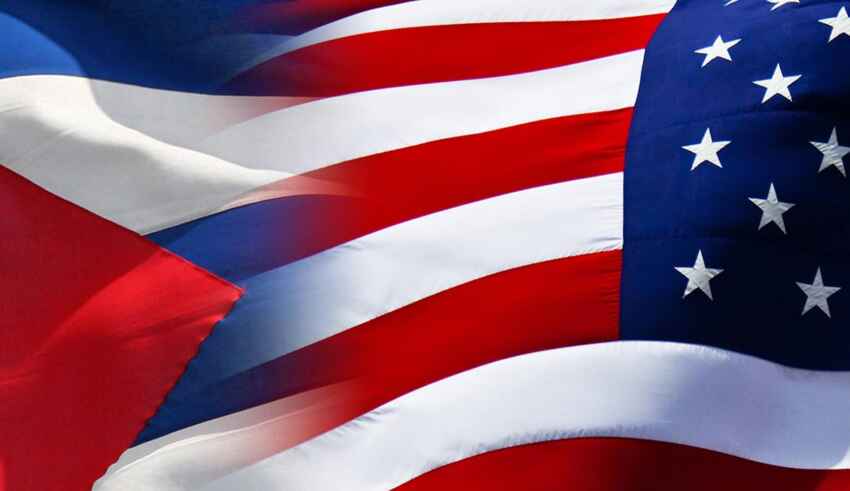
The United States’ relationship with Cuba has been marked by political tensions and economic restrictions. The sanctions imposed by the US on Cuba represent one of the most enduring and comprehensive sanctions regimes ever applied. The U.S. cited human rights violations, communist tendencies and regional instability as the primary reasons for the sanctions. Even recently, US diplomat Paul Folmsbee stressed the embargo was aimed at promoting fundamental liberties in Cuba. It is, however, clear that the sanctions did not achieve the intended result of forcing Cuba’s revolutionary regime out of power or bending it to its will. Nor the human rights violations have been addressed as a result of the sanctions. On the opposite, many human rights groups and, recently, an EU human rights envoy raised concerns as to the effects of the sanctions on exactly social and economic rights.
The economic embargo imposed by the U.S. on Cuba has famously cast a long shadow over the nation, impacting various sectors, including healthcare, education and access to basic amenities. As the country suffers its worst economic crisis in decades, Cubans are facing shortages of food and medicine. The Cuban Foreign Minister, Bruno Rodriguez, has gone as far as stating that “the blockade qualifies as a crime of genocide”, for the US policies are deliberately aimed at promoting suffering among the Cuban people. Though not in such extreme terms, the international community seems to agree with the Cuban government. In fact, the UN General Assembly called for the 31st time on the United States to end its embargo against Cuba. A resolution was voted by 187 countries. The resolution remains non-binding, but it certainly shows international concern about the consequences sanctions are having on Cubans. In 2021 it was estimated that the embargo costed the country close to $144 billion. The economic strains, combined with complex licensing requirements, have had terrible consequences for various essential sectors in the country.
One of the most glaring consequences of the economic sanctions on Cuba is the strain they place on the country’s healthcare system. Restrictions on the import of medical supplies and equipment, exacerbated by the economic downturn induced by sanctions, discourage sales of medical equipment to Cuba, resulting in a shortage of essential resources. This shortage has direct implications for the right to health of the Cuban population, undermining their access to quality medical care. Gail Reed, founder of Medical Education Cooperation with Cuba, highlighted that the US policy particularly jeopardises the health and welfare of women, children and people with severe conditions, such as cancer and HIV/AIDS.
Moreover, the educational sector in Cuba has also borne the weight of these sanctions. Limited access to educational resources, hindered academic exchanges, and financial constraints have hampered the right to education for many Cuban citizens. Importantly, while the intended goal of these sanctions may be to instigate political change, they often have the unintended consequence of consolidating power in the hands of the ruling regime. Economic hardships can be manipulated by governments to tighten control, curbing dissent and limiting the space for civil society to flourish. In essence, the impact of sanctions can inadvertently empower authoritarian regimes, undermining the very principles of democracy and human rights that the sanctions purportedly seek to promote.
Thus, the effects of sanctions do reverberate beyond the realm of geopolitics, living a mark on the daily lives of Cubans. Whilst the tensions persist between the US and Cuba, the cost of sanctions on the Cuban people’s well-being cannot remain overlooked. Given the limited effectiveness of sanctions on the Cuban government, and the evidence that ordinary Cubans are paying the highest price for the sanctions, it would be desirable for the US to welcome the international concern and explore alternative options to such punitive measures. After all these years, a concerted effort to prioritise engagement and cooperation should be attempted.
For example, the United States could adopt a policy of conditional engagement, leveraging incentives to encourage positive changes within Cuba. By tying economic benefits and diplomatic recognition to improvements in human rights and political openness, the United States could stand a chance to foster a more accountable and transparent Cuban government. This in turn, would make Cuba a more profitable economic partner, which ultimately would benefit American businesses as well. Furthermore, a more effective way to influence the political landscape in Cuba would be to empower civil society organisations, including independent media and human rights advocates, and to continue to hold the Cuban government accountable for the overly repressive attitude showed towards protests.
To conclude, the time has probably come for the United States to re-evaluate its approach to Cuba. Instead of relying solely on sanctions, other alternatives should be prioritised, especially diplomacy and conditional engagement combined with humanitarian assistance.
By The European Institute for International Law and International Relations














